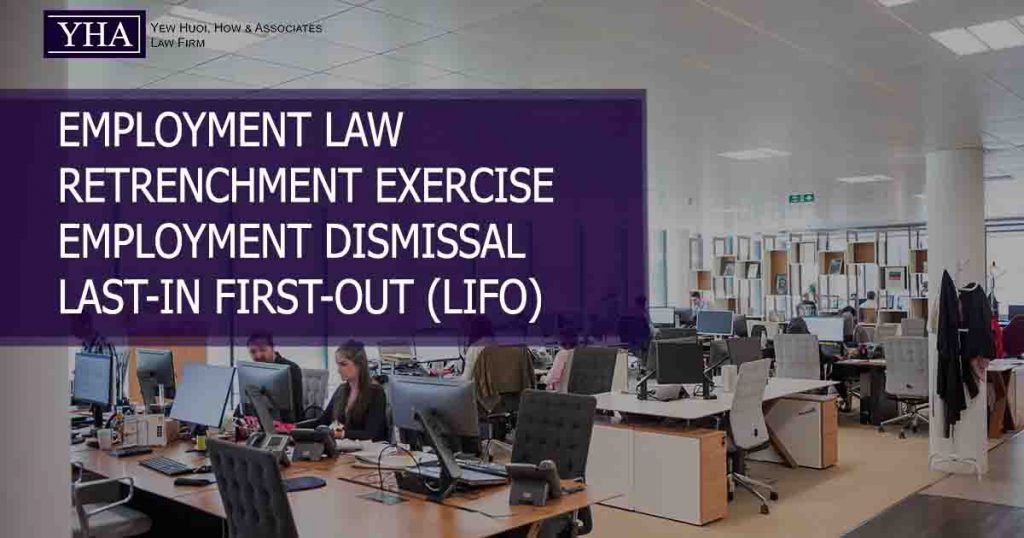What is retrenchment?
- Retrenchment is an action taken to terminate the employment in the event of redundancy in the workforce of a company.
- Redundancy is a situation where the employee or position is no longer required. In short, it is when an employer has more employees than it needs.
Criteria for selecting employees to be retrenched
Code of Conduct for Industrial Harmony (“the Code”) provides guidelines on retrenchment exercises.
This includes:
- Ability
- Experience
- Skill and occupational qualifications
- Length of service
- Status (non-citizen, casual, temporary, permanent)
- Age
- Family situation
A commonly applied principle – “Last-In, First-Out” (“LIFO”).
The most junior employee (in terms of length of service) would be retrenched first, compared to those who have served for a longer duration.
Section 60N of the Employment Act 1955 – Employers should terminate the services of foreign workers first before considering local employees.
Although the Code does not have force of law, employers are encouraged to comply with LIFO.
To justify not using LIFO, an employer must provide clear evidence to prove that an employee does not have the skills required for the job.
In what situation can a company retrench an employee?
- There must be redundancy.
- The dismissed employee must have been correctly selected for retrenchment (objective criteria).
- Retrenchment must be done in good faith and not with motives of any unfair labour practices. In short, the employer must have a fair procedure in place before carrying out retrenchment.
- The burden of proving that the retrenchment is bona fide lies with the employer. It is not for the employee to show that the retrenchment is unfair.
- The burden is on the employer to prove actual redundancy. The employer has a duty to prove that the circumstances were such that the employees’ functions has to be reduced because they are considered redundant.
Case in point: Ng Chang Seng v Technip Geoproduction (M) Sdn Bhd & Anor [2021] 1 MLJ 447. Court of Appeal (Putrajaya) – Civil Appeal no: W-02(A)-692-04 of 2019

